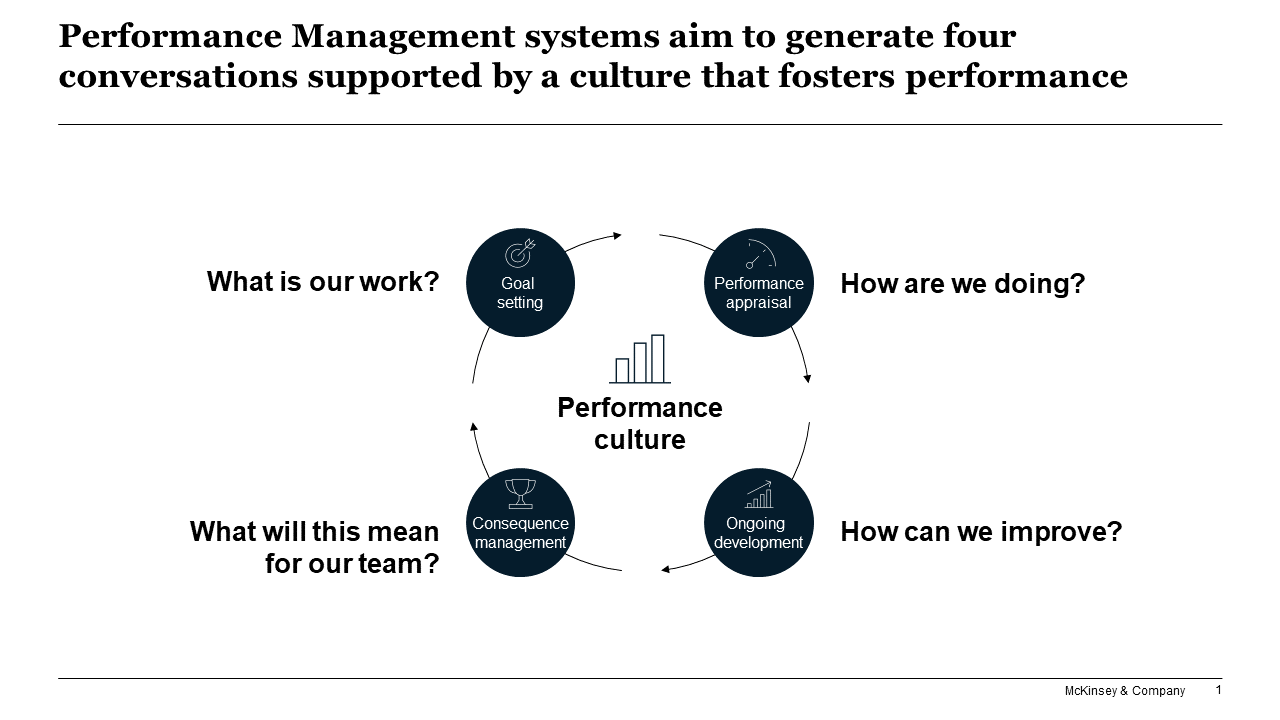Today, many organizations celebrate teamwork; few have performance management systems that formally recognize teams as the muscle that delivers business results. Several companies have begun exploring elements of a team-based performance management system:
- An HR technology firm collects real-time, anonymous feedback from team members on their teammates’ behaviors and delivers personalized, weekly coaching e-mails to team members.
- The R&D unit of a pharmaceutical company designs employee bonuses around personal and team performance (e.g. project progression to milestone).
- A supermarket chain assesses store-level teams monthly for productivity and awards profit-sharing checks to the most productive.
Our research indicates that organizations for the most part doubt the effectiveness of current state performance management systems on the whole, in large part due to questions around fairness. This case for system change, coupled with teams being recognized as an important unit of the workplace, could lay the stepping stone to simultaneously improve performance management and transition to a team-based system that reflects the evolved operating model of many organizations.
Several enabling practices will power a truly team-based model in the future – all of which draw threads from what we know about best-in-class individual performance models.

Team goals. Strategy is defined centrally, and goals are cascaded to teams and managed through the agile Quarterly Business Review process. Teams then autonomously set goals that align with their purpose for what they will work on, and how they will accomplish their results. Take for example a financial institution that replaced all individual objectives in contact centers with team objectives. Within months, it saw productivity gains of more than 10 percent.
Team appraisals. Organizations with an all-team model will shift to recognizing team output, as opposed to individual contributions. Many companies incorporate team-based behaviors into their leadership framework and evaluate employees on both their individual contributions as well as their team-oriented behaviors (e.g., collaboration, reliability). At a National Mail Service, ‘I work with others to Win’ is a key competency expected of their high performing employees.
Team development. Ongoing development conversations have a positive impact on performance, and companies that support those conversations are likely to have effective performance management systems. Frequent, strengths-based conversations complement formal appraisal periods. When pivoting to a team-based model, feedback must be founded on a leadership development model that defines the core behaviors desired of individuals and the teams. At a Canadian flight technologies company, individuals leverage a Workday-based feedback tool ad hoc to capture group-attributed feedback from 5-6 peers.
Team rewards and recognition. Intrinsic motivators that drive individual performance also prevail in a team-based system. Research has proven that financial incentives are but one (and not the most important) option for motivating employee performance. Outstanding team performance could mean rewards in the form of initiative investment or access to desirable projects. A consumer electrics company rewards teams whose products perform well in the market with a financial stake in the investment.
Performance culture. An at-scale, team-based approach entails a culture of transparency. The transparency around team performance fosters continuous improvement, as leaders across the organization discover what drives performance, share data on what good teaming looks like and understand what attributes matter. This in turn enables teams to see how they are doing and consider ways to improve and learn from the best teams out there.
In architecting organizations of the future, leaders will need to empower teams to rise to the challenge of delivering outcomes. A team-based performance management system will not only ensure the right teams are being recognized for great work, but it can also unlock how team-based organizations operate at full potential.
The innovators have made their move – how ready is your organization to adopt the next shift?
The authors would like to thank Vedant Kabra for his contribution to this blog post.
